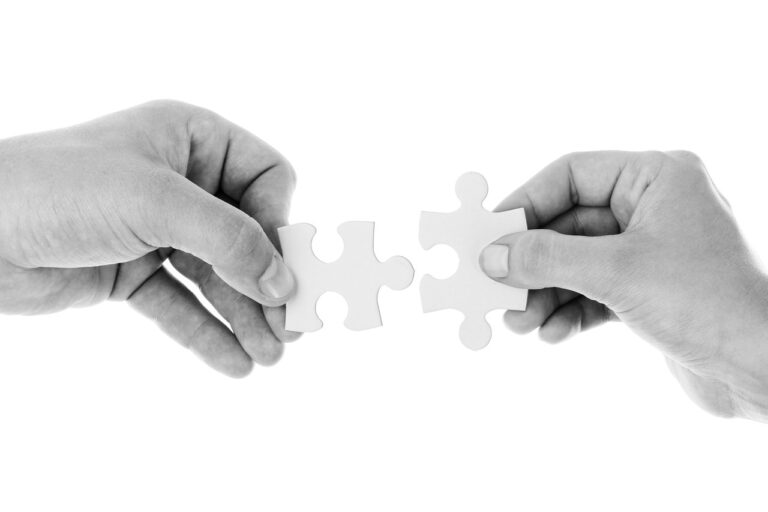Introduction
Dating can be a rollercoaster of emotions. One moment you might be on top of the world after a wonderful date, and the next you could find yourself feeling rejected or disappointed.
Everyone experiences rejection and disappointment in dating at some point, whether it’s being turned down for a date or finding out that someone you were interested in doesn’t feel the same way. Rejection is when someone doesn’t reciprocate your interest or ends a relationship with you.
It can leave you feeling hurt, confused and even questioning your own self-worth. Disappointment happens when your expectations aren’t met in the dating realm.
Maybe you thought things were going well with someone, but then they suddenly stop communicating with you. Whatever the situation may be, it’s important to have coping mechanisms in place to handle these difficult feelings.
Importance of Coping Mechanisms
Coping mechanisms are strategies and techniques we use to deal with stressful situations or emotions. Having effective coping mechanisms is crucial for maintaining good mental health and overall well-being when navigating the ups and downs of dating.
Learning how to cope with rejection and disappointment can help reduce negative emotional reactions, such as anger, sadness, or anxiety. Coping mechanisms may also help prevent these emotions from spiraling into something more serious such as depression or PTSD.
As much as we would like to believe that we are invincible creatures who do not require any kind of external support from others, seeking support from friends and family during times of distress is nothing but healthy! In this article, we will take a look at some effective coping strategies that can help deal with rejection and disappointment when it comes to dating so that those moments don’t derail your journey towards finding true love!
Coping Mechanisms for Dealing with Rejection
Accepting the Reality of the Situation
Rejection is an inevitable part of dating. It can be painful and discouraging, but it’s important to accept that rejection happens to everyone at some point. It’s easy to get caught up in thoughts like “what did I do wrong?” or “why wasn’t I good enough?”, but dwelling on these thoughts won’t change the outcome.
Instead of fighting against reality, try embracing it. Accept that the person you were interested in didn’t feel the same way and move on.
One helpful technique for accepting rejection is mindfulness. Practicing mindfulness involves focusing on the present moment without judgment.
When you feel overwhelmed by negative emotions after a rejection, take some time to breathe deeply and focus on your thoughts and feelings without trying to change them. Over time, this practice will help you develop a more compassionate attitude towards yourself and others.
Focusing on Self-Improvement
One positive aspect of rejection is that it presents an opportunity for self-improvement. Instead of wallowing in self-pity, use this experience as motivation to become a better version of yourself. Reflect on any negative patterns or habits that may have contributed to the rejection and make a conscious effort to address them.
For example, if you struggle with social anxiety and feel like it’s holding you back from forming connections with others, consider seeking out therapy or practicing exposure therapy techniques like gradually exposing yourself to social situations that make you uncomfortable. By putting effort into improving yourself, you’ll not only increase your chances of success in future relationships but also boost your confidence and sense of self-worth.
Seeking Support from Friends and Family
Dealing with rejection can be incredibly isolating, but remember that you don’t have to go through it alone. Reach out to friends and family for support and comfort. Talking about your feelings with someone you trust can help you process them and gain a new perspective on the situation.
Additionally, spending time with loved ones can be a helpful distraction from negative thoughts and emotions. Plan fun activities with friends or family members that make you feel good, whether it’s going out for brunch or taking a hike in nature.
Overall, coping with rejection requires both self-reflection and external support. It’s important to be gentle with yourself during this difficult time and remember that rejection is not a reflection of your worth as a person but simply a part of the dating process.
Allowing Yourself to Feel Your Emotions
Dealing with disappointment can be tough, especially if it’s something we’ve been looking forward to for a long time. The first thing we often do is push our feelings aside and try to ignore them.
Unfortunately, this approach does not help us process or deal with our emotions in a healthy way. Instead of ignoring your feelings, allow yourself to feel them.
It’s okay to feel disappointed or sad after a date didn’t go as planned. Allow yourself the space and time to process these emotions.
It may be helpful to talk to someone you trust about your feelings, like a friend or therapist. By acknowledging and expressing your emotions, you can start healing and moving forward in a positive way.
Reframing Your Perspective
Sometimes when things don’t go as planned, it’s easy to fall into a negative thought spiral. We may start questioning ourselves, our worthiness, or even our ability to find love.
However, it’s important that we don’t let negative thoughts consume us after experiencing disappointment in dating. One effective coping mechanism is reframing your perspective.
Try looking at the situation from a different angle or finding the silver lining in the experience. For example, instead of focusing on what went wrong during the date, try focusing on what you learned about yourself or what you would do differently next time around.
Another technique is practicing gratitude by listing all the things you are thankful for in your life right now. This shifts your attention away from negativity and helps you focus on positivity.
Engaging in Self-Care Activities
When we experience disappointment or rejection in dating, it’s crucial that we take care of ourselves both physically and mentally. Engaging in self-care activities is an effective coping mechanism that can help us feel better emotionally. Self-care looks different for everyone but can include taking a relaxing bath, going for a walk in nature, trying a new hobby, practicing yoga or meditation, or treating yourself to something you enjoy like a favorite meal or movie.
Taking care of yourself sends the message that you are worth investing in and can help boost your self-esteem. When you prioritize self-care, it allows you to enter future dating experiences with a positive mindset and an increased sense of self-love.
Mindfulness Techniques for Managing Negative Thoughts and Emotions
Rejection and disappointment can lead to negative thoughts and emotions that can be difficult to manage. Mindfulness is a technique that can help you stay present in the moment, rather than dwelling on negative past experiences or anxious future scenarios.
Mindfulness involves paying attention to your thoughts and feelings in a non-judgmental way. When you experience rejection or disappointment, it’s important to acknowledge your emotions without allowing them to take control of your mind.
One mindfulness technique is deep breathing. Take deep breaths through your nose, hold for a few seconds, and slowly exhale through your mouth.
Focusing on your breath can help calm your mind and reduce feelings of stress or anxiety. Another technique is body scanning, where you focus on each part of your body from head to toe, noticing any physical sensations without judgment.
Cognitive-Behavioral Therapy Exercises to Reframe Negative Beliefs About Oneself or Relationships
Negative beliefs about oneself or relationships can contribute to feelings of rejection and disappointment in dating. Cognitive-behavioral therapy (CBT) is an evidence-based therapy that helps individuals identify negative thought patterns and replace them with positive ones.
CBT exercises can be helpful for those struggling with self-esteem issues or negative beliefs about relationships. One common CBT exercise is the ABC model, which stands for Activating event (rejection), Belief (I’m not good enough), Consequence (feeling depressed).
The goal of this exercise is to identify the belief that led to the negative consequence and reframe it with a positive belief (e.g., “I may have been rejected this time but I am still worthy of love”). Another exercise is creating a thought record where you write down the triggering event, automatic thought, evidence supporting the thought, evidence against it, alternative perspective, and new balanced thought.
Journaling Prompts for Reflection and Growth After Rejection or Disappointment
Journaling can be a helpful tool for processing emotions and experiences related to rejection and disappointment. Writing down your thoughts and feelings can help you gain clarity, process difficult emotions, and identify patterns in your dating experiences. Journaling prompts can help focus your writing on specific areas of reflection.
One journaling prompt is “What did I learn from this experience?” This can help you identify lessons learned from any rejection or disappointment and apply them to future dating experiences. Another prompt is “What are my strengths and positive qualities?” Focusing on your positive qualities can help boost self-esteem after a difficult experience.
Consider writing a letter to yourself offering words of encouragement or advice for future dating experiences. This can provide an opportunity for self-compassion and reflection.
The importance of setting realistic expectations in dating
When it comes to dating, we often have high expectations for ourselves and our partners. We want the perfect person who will fulfill all of our desires and needs.
But the truth is, no one is perfect and relationships require compromise. Setting unrealistic expectations can lead to disappointment and frustration when things don’t go as planned.
It’s important to have standards and boundaries, but they should be based on realistic expectations. Take time to reflect on what you truly want in a relationship, but also consider what is feasible.
Focus on finding someone who aligns with your values and goals rather than trying to mold someone into your ideal partner. Remember that relationships take work and it’s okay if everything isn’t perfect all the time.
How past experiences with rejection can affect future relationships
Experiencing rejection can be tough, especially in romantic relationships. It’s natural to feel hurt or insecure after being rejected, but it’s important not to let those emotions dictate your future relationships. Past experiences with rejection can cause a fear of vulnerability or a lack of trust in potential partners.
It’s important to acknowledge these feelings and work through them before entering a new relationship. Consider seeking therapy or support from friends or family members.
It’s also important not to project past experiences onto new partners who may have different intentions or behaviors. Take things slow and communicate openly with your partner about your fears and concerns.
The role of vulnerability in building healthy relationships
Vulnerability is often seen as weakness, but it’s actually the key ingredient for building strong connections with others. Being vulnerable means being honest about your feelings, thoughts, and insecurities without fear of judgment or rejection.
In order for a relationship to thrive, both partners must be willing to be vulnerable with each other. This means opening up about past experiences that may have shaped their behavior or mindset, expressing their needs and desires, and being willing to listen to and support each other.
It’s important to remember that vulnerability is a two-way street – both partners should be equally open with each other. When both partners are willing to be vulnerable, it creates a strong foundation of trust, intimacy, and understanding in the relationship.
Conclusion:
Recap of Coping Mechanisms Discussed:
In the world of dating, rejection and disappointment are inevitable. Although it may seem like there’s no escaping the pain, there are many coping mechanisms that can make dealing with these difficult emotions a little bit easier.
The first step is to accept the reality of your situation. Whether it’s coming to terms with the fact that a relationship has ended or acknowledging that someone you’re interested in isn’t interested in you, accepting the truth can help you move forward.
It’s also important to focus on self-improvement. This means working on yourself physically and mentally so that you feel confident and ready to take on whatever comes your way.
Seeking support from friends and family can also be incredibly helpful. Having a support system in place can provide comfort when things get tough.
Other techniques include mindfulness practices for managing negative thoughts and cognitive-behavioral therapy exercises to help reframe negative beliefs about oneself or relationships. Journaling prompts can also provide an opportunity for reflection and growth after rejection or disappointment.
Encouragement to Seek Professional Help if Needed:
While coping mechanisms like those mentioned above can be incredibly helpful, sometimes they may not be enough. If feelings of sadness or anxiety persist, it may be time to seek professional help.
A therapist or counselor can work with you to develop coping strategies specific to your situation and provide a safe space for exploring difficult emotions. Remember, experiencing rejection or disappointment is not a reflection of your worth as a person.
It’s important to practice self-compassion and remind yourself that everyone experiences these emotions at some point in their lives. By incorporating some of the coping mechanisms discussed in this article into your life, learning how past experiences with rejection affect future relationships, setting realistic expectations in dating, being vulnerable with people you trust, reframing negative thoughts about oneself or relationships, and engaging in self-care activities, you can move forward with greater confidence and resilience.






